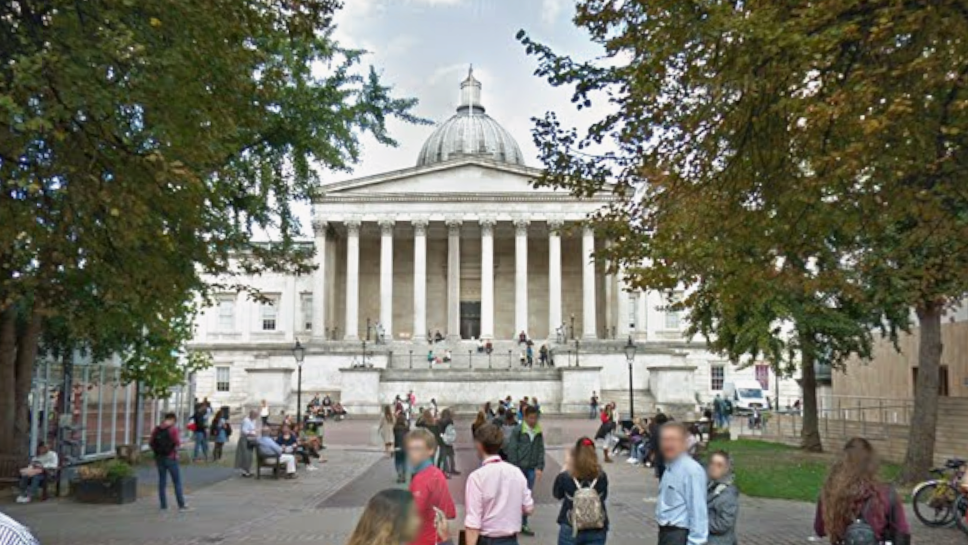March 17, 2025
Climate Perceptions
Disclaimer: This story's incidents and fictional characters have no relation to actual events or persons.
Carl, Lee, and Tom sat on the steps of the UCL main building. They had been enjoying the UCL Law School's rigorous but informal ambiance. Carl was the son of a schoolteacher, and Tom was from a farming background. Both obtained admission to the school by merit with a scholarship. In contrast, Lee was the son of a business tycoon. They were experiencing an unusually warm winter. Carl started a casual conversation about the weather, culminating in an interesting discussion on climate change.
Carl: Climate change is causing the weather patterns to change.
Lee: NO, there is no climate change. It is a conspiracy spread to destroy the fossil fuel industry.
Tom: I think so. The MP of my constituency says that it is a hoax. He is the most powerful person in my constituency. If he says so, it must be true.
Carl: A person with authority doesn't always need to be correct. Many scientific studies have concluded that climate change is real.
Tom: But my town has never experienced any unusual effects due to climate change.
Carl: Sure, but look around the world. Extreme climate events happen over a spread of geography. They are happening more frequently and are more intense.
Tom: You are talking as if you know everything about the climate.
Carl: I don't claim to know everything, but I do know enough to understand the gravity of the situation. I once gave a talk at a conference, which people appreciated.
Lee: Do you know? You have a self-serving bias and like to be in the spotlight. None of my Facebook friends believes in Climate change.
Carl: Yeah, this is the false consensus effect. Do you know what Mark Ruffalo, the Hollywood actor, once said?"Climate change is the greatest threat to our existence."
Lee: Well, now you are under the spell of celebrity. Not only that, but you also have a negative bias. You are just focusing on the negative side of the fossil fuel industry. Look at the prosperity we have achieved, the development we see around us, and the jobs the UK has created. We are one of the top ten economies in the world and have had consistent GDP growth over the decades. It was all made possible by fossil fuels. We are privileged to be trained at UCL, which receives donations from many industries.
Carl: You are presenting an illusory correlation. An industry is philanthropic, but that doesn't mean an industry using energy from fossil fuels is good for the people. Consider the recent heat waves we experienced. Doesn't it open your eyes?
Lee: The recent event is fresh in your mind. But that doesn't mean it will happen all the time in the future.
Carl: Look at the hard evidence. From 1990 onwards, about 8900 Gtons of Antarctic glacier mass have disappeared from the planet, and the sea level rise is about 11 cm.
Lee: The melting of ice in Antarctica is good for the economy. Now, ships from the northern regions of Asia and Europe can travel directly to the USA, bypassing the long route through the Suez Canal. Greenland ice melting is good as it makes mining minerals, noble metals, and rare earths possible, whose demand is increasing.
Tom: Let me narrate my own experience with conventional cars, which, of course, run on fossil fuel. My dad's first car was a Ford. We liked it so much that we have been buying only Fords since then. I own a Ford and value it very much. My friends Dick and Harry have no problems with conventional cars. Once, I tried an electric car, but its battery caught fire, and I lost a lot of money. I don't see anything wrong with fossil-fuel-based cars. I don't think I will buy an electric car again.
Lee: Do you know? All 'Avis Car Services' cars are conventional fossil-fuel-based. It confirms that traditional cars are here to stay.
Carl: Our discussion until now has been anchored to our personal experiences, likes & dislikes, biases, and perceptions. At times, we argued just for the sake of argument. In law school, we have come to learn how to base our conclusions on evidence and logic. Science, too, follows the same practice. Let's do that.
Carl continues...
Carl: In science, we Observe, Reflect, Interprete, and Decide (ORID). In climate science, the number of observations is enormous. A vast amount of data on temperature, pressure, wind, etc., from different locations for decades is collected. They try to recognize trends and patterns in the data. Theoretical Models from these patterns are developed. The data is fed to supercomputers to validate these models. These models can then predict how the climate will behave in the future. Scientists give the benefit of the doubt to these predictions by assigning uncertainties in the prediction. Until now, all predictions on climate change have come true. Therefore, I say that Climate Change is real.
Cal further elaborates…
Carl: Carbon dioxide emissions from fossil fuel burning cause the greenhouse effect, increasing global temperature, melting glaciers, raising sea levels, changing wind patterns, and changing the climate. We will witness drought, heavy rains, typhoons, floods, forest fires, and similar extreme weather events with increasing frequency and intensity at different locations on the earth. If we cross the tipping point, climate change will be irreversible, and living beings will face an existential crisis. It will be too late if we don't worry about it now.
Carl sighs and asks, "What is the use of development, economy, and jobs on a dead planet?"
Tom and Lee say in unison, "Yeah, we understand." What is the use of development, economy, and jobs on a dead planet?
Author: Dushyant C. Kothari

